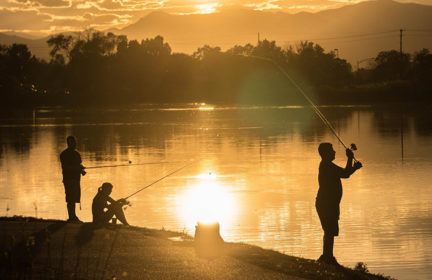Are you a prepper or are you practicing prepper?
Have you actually done “it” yet? Practiced that skill you’ve read about, but have never actually done.
Half-measure prepping is like running a race and not crossing the finish line.
It is one thing to read, research, debate and buy items. It is another aspect of prepping to learn and ingrain new skills
Untried and untested items in a prepper storehouse could be a dangerous discovery when the SHTF and you need to rely upon them. That isn’t the time to find out you have forgotten a key part needed for another item to work, or that the item in storage isn’t appropriate for your climate or location.
There is a lot to learn and it can be overwhelming. But, what you learn today and every day before some disaster strikes can help you.
You can learn by reading to a point, but actual experience is needed for many prepping skills. A day or two course is great, but you need to practice in order to retain those skills.
The practice component of prepping is important in that it also helps us to keep our preps simple and not get overblown on items that are unnecessary.
Let’s take hunting for an example. Once the stored food runs out, hunting is going to be a fact of life. Those who survived The Great Depression and other long term disasters quickly found that out. Back then, there were more people who knew how to hunt properly because we had more smaller family farms and a denser rural population with those skills.
You have a gun and bullets. Great, but have you actually hunted and if so, for how many seasons? One season is not enough to learn everything.
In any crisis, but especially a long term crisis, it is important to know how to practice good animal stewardship. You don’t kill the pregnant does or the does with fawns. Fawns stay with the mother for two years.
Be honorable in your hunt and grateful for the animal who gives its life to feed you. Night hunters are not honorable nor are those who take more than what they will use. Animal populations can be decimated very quickly and those who do this will starve in the end.
If you wound it, track it. Hunting is not about letting any animal suffer because you missed the shot. Do you know how to track an animal?
Do you know how to dress for a hunt? Do you know how to stay safe around an animal that you think is dead? A kick from a not quite dead deer can cost you a limb if they break the skin and you get infected without antibiotics in a disaster.
Hunting is a skill that must be mastered over time and preferably taught to you by an excellent hunter so that you learn the right way to hunt and harvest your kill in the environment you will be hunting in.
Have you learned how to properly and safely harvest your kill? Did you buy the proper saws and knives need to butcher the animal? Do you have freezer wrap and freezer tape or some other method of preserving the kill? Do you know how to use the entire animal including the hide?
Do you know to trim all the fat off a deer because it affects the taste of the meat and makes it gamey tasting? Do you know how to properly cook venison so that it tastes really good?
I could have substituted so many other skills: fishing, baking with a solar oven, repair and maintenance of your home and property, gardening, repair and sewing of clothes, evacuation drills, op/sec drills in and out of the home.
The list goes on and on for a reason. It is because each of us comes here with a different background and different skills. Some will have a longer list to learn, while others may want to reconsider their prepping plans.
It is only through careful consideration of what you will need to actually do in a crisis that you will know if it is for you or if you need to do something else.
For example, if hunting seems like too much to take on, then learn to fish.
Harvesting a fish isn’t difficult. For pickerel (walleye) we cut off the head behind the gills, slit the belly and eviscerate. Take the split fish and very carefully take your sharp boning knife and run it between the skin and flesh of the fish. Carefully cut out the flesh from the spine area. Feel with your fingers for any bones you missed.
I haven’t cleaned a fish for years but my “hands remembered” the skill as I typed this. I might have missed a point but if I had a fish in front of me, I am confident that it would come back to me.
The Indigenous people in Northern Canada make a fish head soup that is a delicacy. Also, get a good boning knife. Mine was from a fish processing plant and designed to be extremely well made.
A final point about practicing, you will also find out what you are physically and mentally capable of doing. Knowing our limitations is a very important part of prepping.
-
Comments (13)
-
